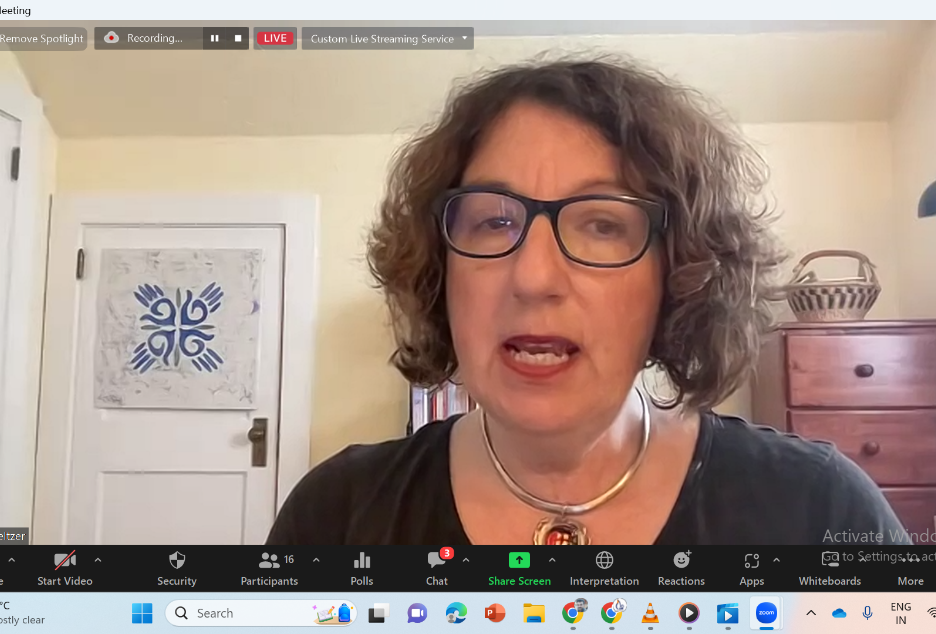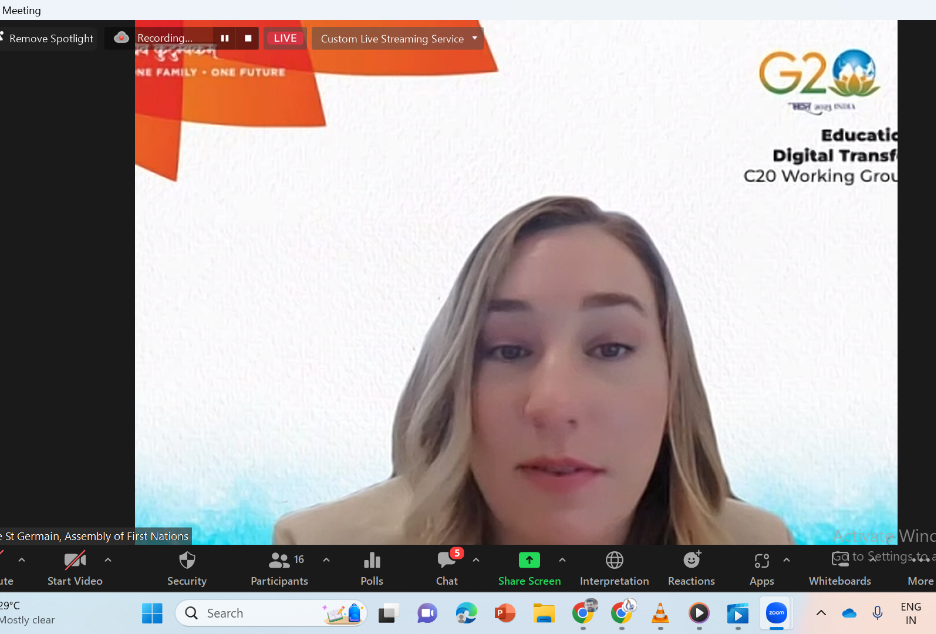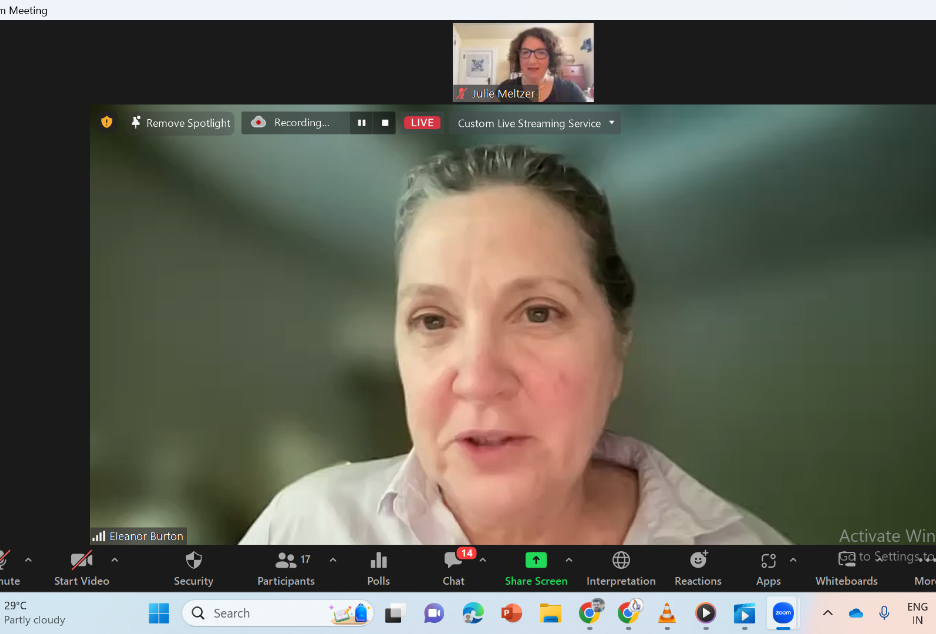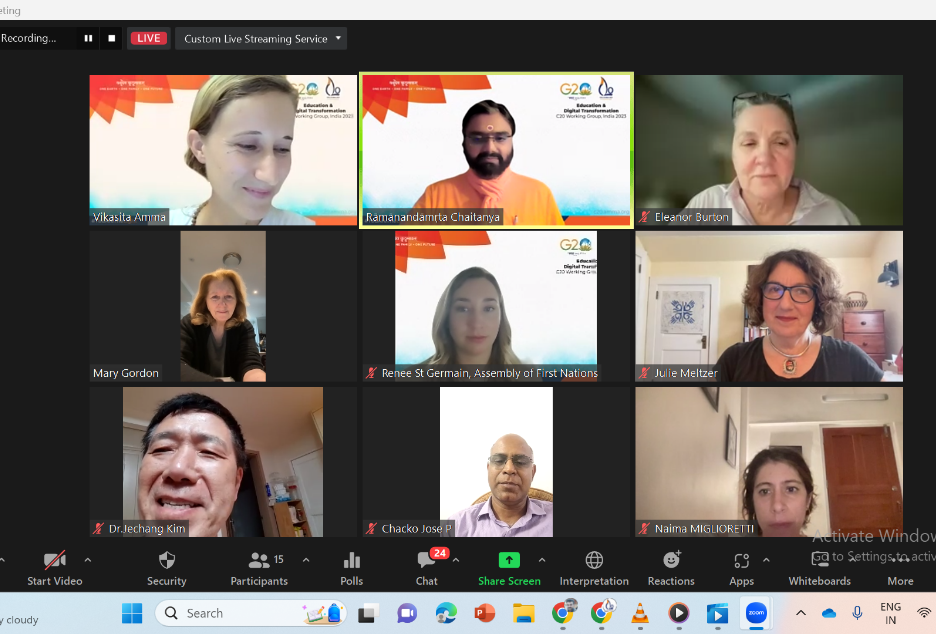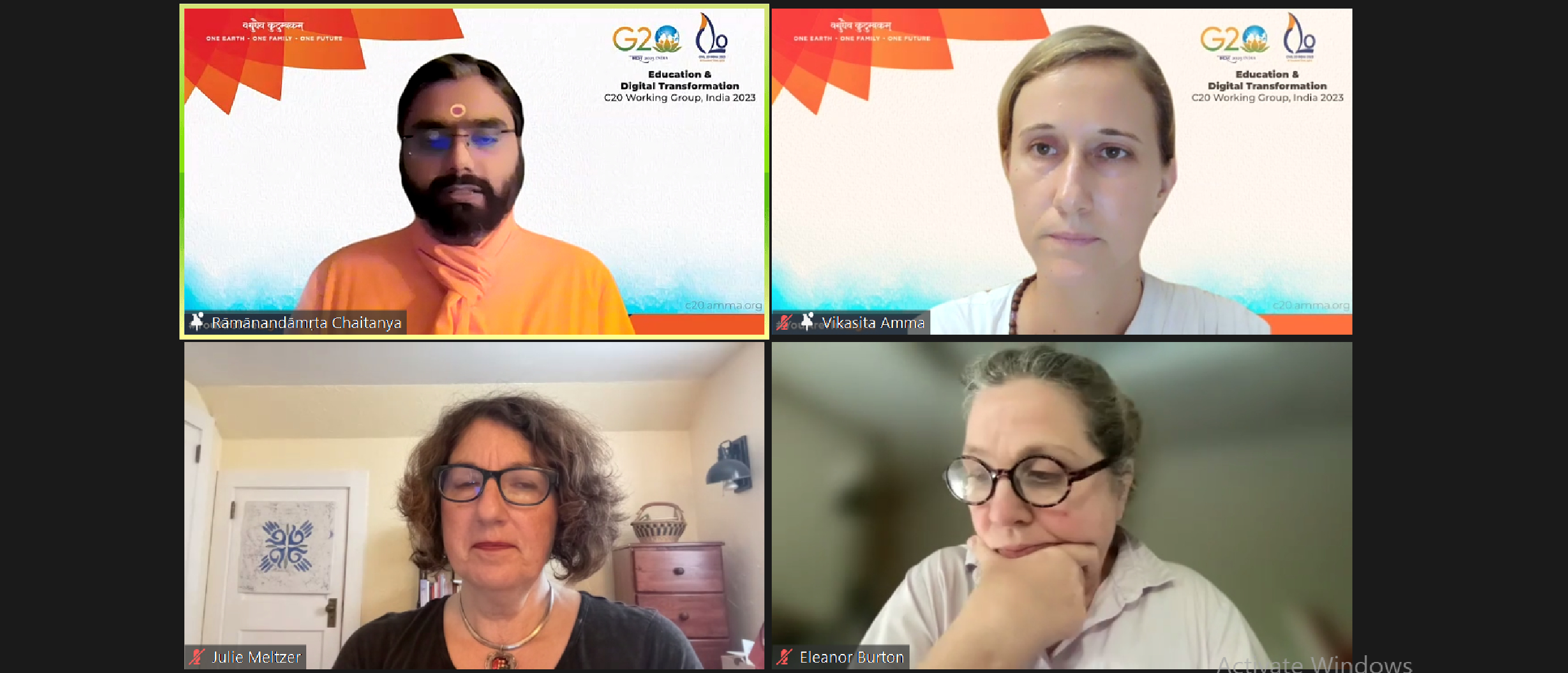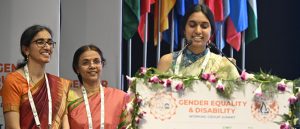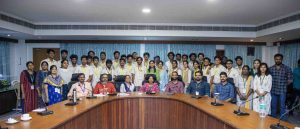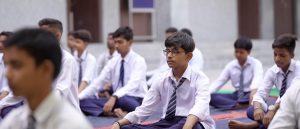The Civil 20 Education and Digital Working Group recently held a virtual event on April 30, focusing on the theme of “Education for Life: Indigenous and Regional Cultural Perspectives”. The panelists discussed the significance of providing equitable education in indigenous communities, while supporting sustainable development. Attendees from over ten countries participated in the event.
The panel was moderated by Bri. Vikasita, a Humanitarian Aid Specialist and Yoga Therapist. The panelists included Dr. Julie Meltzer, Director of Education at the Institute for Humane Education in the USA, Dr. Zulumathabo Zulu, an African Historian and Founder of Thekwini Visual Canvass at Madisebo University Research Institute in South Africa, Renee St. Germain, Director of Languages and Learning at the First Nation of Ontario in Canada, and Eleanor Burton, Training and Relationships Manager at En.v. Earth in Kuwait.
Dr. Julie Meltzer is dedicated to creating schools that help students prepare for their futures. She tirelessly advocates for literacy, justice, and equity. As the Director of Education at the Institute for Humane Education, she emphasised the need to make Humane Education accessible by working with schools and students, adopting the solutionary framework to encourage systems thinking, focusing on people, animals, and the planet, and actively participating in education for life.
Dr. Zulumathabo Zulu created Thekwini Visual Canvass, a software designed for therapeutics, and has delivered lectures on African Mathematical Systems and Indigenous Knowledge Systems at South African universities. He spoke about the three principles of indigenous philosophy on survival experience, existence, and coordination. He emphasised the importance of looking at the essence of the knowledge to be passed on to students.
Renee St. Germain stated that lifelong learning must be in line with cultural values, traditions, and languages. She said, “Our languages are sourced from the land that holds value customs from worldviews and in accordance with legal order governance histories and stories.” She added that lifelong learning is essential, and education must be inclusive.
Eleanor Burton stated that creating an environment to transform education requires inclusivity, building empathy and compassion, and creating support systems worldwide. She added that education is a powerful and adaptable tool, and its potential must be harnessed.
